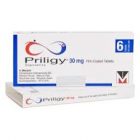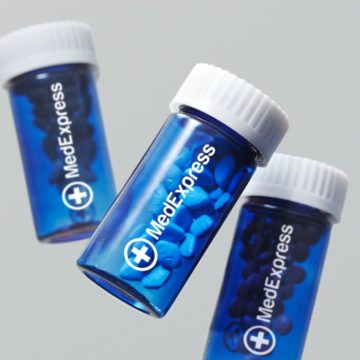Premature ejaculation can be confused with erectile dysfunction – but the two are very different. The former is when you ejaculate too soon during sexual intercourse, while erectile dysfunction is a problem maintaining an erection. While it’s possible to suffer from both at the same time, the two are treated separately. Erectile dysfunction (impotency) is a problem getting or keeping a firm enough erection for intercourse. Premature ejaculation is when you ejaculate too soon, and is one of the most common male sexual problems.
Premature ejaculation – or PE – can be regarded as a trivial thing – a bit of a ‘joke’. However, it can cause real distress for men and trigger problems within their relationships, as many people don’t understand exactly what premature ejaculation is all about.
Types of premature ejaculation
There are two types of premature ejaculation:
- Primary premature ejaculation – this is when you’ve always had the problem
- Secondary premature ejaculation – this is when it’s just a recent problem
What causes premature ejaculation?
The exact cause of premature ejaculation isn’t clear. Once upon a time, it was only thought to be psychological, now it’s become clear that premature ejaculation involves an interaction of psychological and biological factors.
However, there are some factors that can worsen premature ejaculation. These include:
- Stress – Emotional and mental stress from work and relationships can stop you relaxing and focusing during sexual intercourse
- Erectile dysfunction – If you suffer from erectile dysfunction, you could be at increased risk of premature ejaculation
- Hypersensitivity – Premature ejaculation can also be caused by hypersensitivity of the skin of the penis
- Thyroid Problems – Overactive or underactive thyroid gland
- Use of recreational drugs/alcohol
- A strict upbringing and beliefs about sex – This is often a cause of primary premature ejaculation
- Prostatitis – Inflammation of the prostate gland
How to treat premature ejaculation
There are a few ways you can treat premature ejaculation without taking medication. These include:
- Speaking to a therapist, exploring issues that could be affecting your relationship
- Using thicker condoms to reduce sensation
- Having sex in a position you can control
- Distracting yourself during sexual intercourse by thinking about something completely different
Medication to treat premature ejaculation
Priligy (dapoxetine) is the first oral medication approved for “on-demand” premature ejaculation treatment. Prior to the development of Priligy, all treatments for PE were unlicensed, meaning they were not specifically designed to treat PE, and were instead a decision made by the prescriber and patient.
Priligy dosage
The recommended starting dose for premature ejaculation is 30mg. If after taking this, you don’t experience the desired effect, you can increase the dosage to 60mg. Tablets should be swallowed whole and it’s recommended the tablets be taken with at least one full glass of water. Priligy may be taken with or without food and should be taken one to three hours before sexual activity – but not more frequently than once every 24 hours.
How does Priligy work?
Priligy inhibits the reuptake of serotonin, which is a neurotransmitter involved in passing messages between nerves in the nervous system. By affecting the time taken to ejaculate, it helps men to control ejaculation. The drug will work for some men, and not others; but increases the options a man has in the treatment of his condition.
If you need anymore information about Priligy, contact one of our friendly team for further advice.




